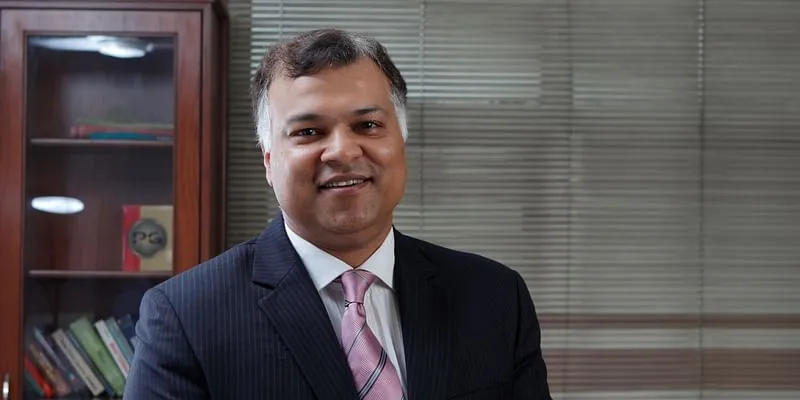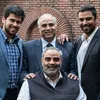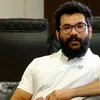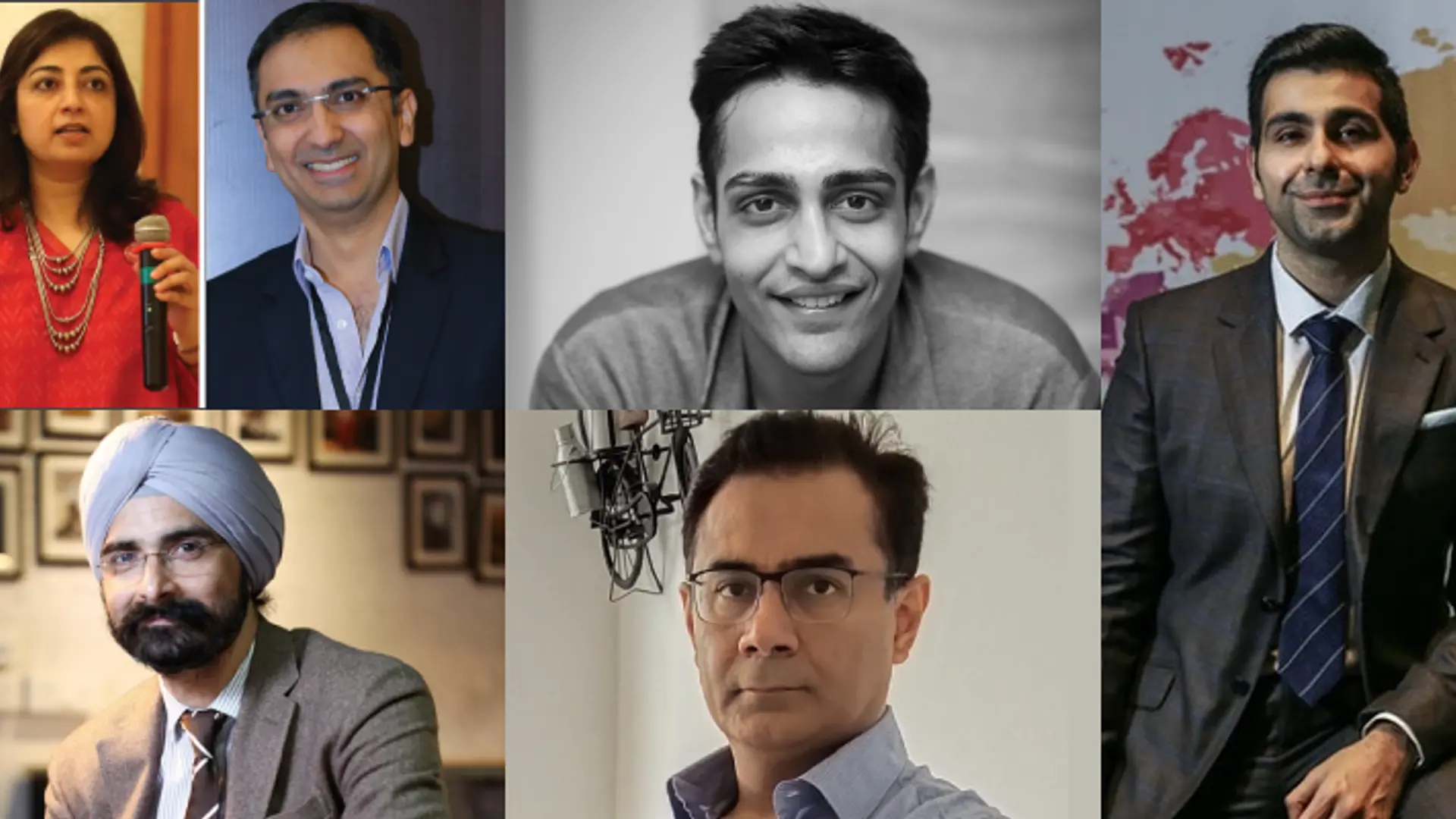How an engineer built his small TV components shop into a Rs 639Cr revenue family business
The Late Promod Gupta used to try his hand at making transistor radios. His tinkering led him down the path of entrepreneurial success and created the legacy of PG Electroplast — a Rs 639 crore revenue, BSE and NSE-listed Indian manufacturing business.
In 1975, a man sat in a small workshop on the terrace of his house in Old Delhi and tinkered with some electronic components.
The Late Promod Gupta, not satisfied with his government job, was an entrepreneur at heart. He would go up to his terrace and try his hand at making transistor radios.
Little did he know his tinkering would lead him down the path of entrepreneurial success and create the legacy of a Rs 639 crore revenue (FY20 figures), BSE and NSE-listed Indian manufacturing business.
Noida-based Limited (PGEL) — an electronics and plastic manufacturing, plastic injection moulding, and printed circuit boards business — was born out of Promod’s entrepreneurial zeal.
The 2,000+ member family-run business names the likes of Llyod, , Reliance Retail, LG Electronics, Voltas, Haier, Whirlpool, Maruti, Mahindra, Tata Motors, and Jaguar, among others as its marquee clientele.
Although PGEL was incorporated as a parent company in 2003, Promod’s original business had started in 1977.
A leap of faith
Promod’s son Vikas, the Executive Director - Operations at PGEL, tells SMBStory:
“My father was an engineer from The Birla Institute of Technology and Science. He worked with the Defence Research and Development Organisation (DRDO) on developing and testing semiconductors for use in various defence systems and installations. However, he was a natural leader and an innate entrepreneur, so he wasn’t satisfied with his work. So he began looking for business opportunities in electronics.”

PGEL Director of Operations Vikas Gupta
Besides making transistor radios, Promod also repaired TVs. He felt the need to supplement his technical skillset with commercial know-how. Thus, he went back to school to complete a Postgraduate Diploma in Marketing and Sales Management from the Faculty of Management Sciences, Delhi University.
Later that year, he took a leap of faith and left the safety of his respected government job to become a full-time entrepreneur.
“At the time, my father faced a lot of resistance. Nevertheless, even in the face of naysayers, he kept going. He found component availability to be an issue, with spares usually coming from Japan or Germany, which naturally had long lead times,” Vikas says.
He adds, “So, he considered manufacturing these components locally. In 1977, with just a few thousand rupees from his savings, he launched a proprietorship (which we now refer to as ‘PG’) to manufacture deflection components for black and white TVs.”
Small enterprise, big challenges
The first few years were challenging for the first-time entrepreneur. Manufacturing these components required specialised machines, which, in turn, required a lot of capital. Thus, Promod decided to engineer and build the machines required for manufacturing.
However, the hurdles were far from over. While he was able to manufacture the TV components, he needed to market PG’s components to potential customers such as Salora, Beltek, Televista, Crown, etc., who were reluctant to buy components from him.
“These brands were used to buying from established component manufacturers from Japan and Germany. My father was confident in his abilities and his products, so he promised the brands expansive warranties and told them he’d cover the cost of new components and repairs,” Vikas shares.
He adds, “The brands, still hesitant, initially gave him small orders. However, as they built up their comfort, they started scaling up their business with him.”
In the early 90s, after forming a good working relationship with these TV brands, PG ventured into manufacturing complete TV sets. In 1995, PG opened its first factory in Noida and landed Onida as one of its key customers.
By then, Promod’s business was making complete black and white TVs. PG started making colour TVs by 1997.

Plastic moulding shop floor at PGEL's Ahmednagar unit
Pivot to survive and grow
Vikas claims PG grew into a leading player in the Indian TV manufacturing market but suffered a setback in 2011.
“The industry quickly pivoted to flat-screen TVs — whose manufacturing shifted out of the country to China. We lost more than 70 percent of our business. There were also a lot of free-trade agreements signed in the country, and local manufacturing seemed to be under threat,” he says.
Post this shift, PGEL pivoted to manufacturing plastic moulded components. Vikas and the rest of the leadership team reasoned that since plastic components are bulky items, importing them would not be viable, and thus venturing into this sector would be a safe bet for PEGL.
“To survive, we began doing plastic injection moulding, PCB assemblies, motor manufacturing, CFL manufacturing, product assemblies, and ODM products,” he says.
The same year, PGEL went public. In 2016, the business started delivering finished products, such as air coolers, air conditioners, washing machines, sanitaryware, etc., for clients as a B2B business acting as an OEM and ODM.
At present, PGEL has six manufacturing units — three in Greater Noida, one in Roorkee, and two in Ahmednagar. All the units are owned by PGEL, except one unit in Ahmednagar, which is under a build-to-suit lease.

Products designed and manufactured by PGEL
Survival and growth amidst COVID-19
According to ReportLink, the global market for plastics injection moulding is expected to grow at a CAGR of over four percent between 2021 and 2026.
India — among other Asia-Pacific countries — is contributing to this growth on the back of increasing demand for plastics from industries, including packaging, automotive and transportation, healthcare, electronics, and real estate, among others.
While Vikas doesn’t name any competitions, he believes the market penetration for PGEL products is still low, and with rapid growth in these segments, there will be “a lot of room for all manufacturing players in the market to grow.”
Last year, when the COVID-19 pandemic hit, PGEL spent the first quarter of the FY in lockdown and the second quarter in manufacturing, with restrictions on the number of people involved.
Its business picked up on the back of resurgent sectors, including automobile, real estate, consumer durables, and electronics. With the second wave of COVID-19 now upon PGEL, the business is primarily looking to minimise risk for its team.
Vikas says, “Business-wise, we expect the situation to start recovering sometime in June. I don’t think this slow period will have any adverse impact on the market in the long term. We expect to see good demand soon, and we are working on growing our product business — in both the OEM and ODM.”
Edited by Suman Singh










